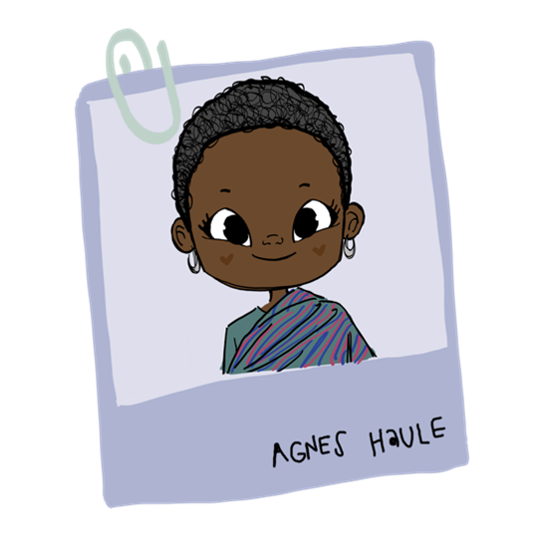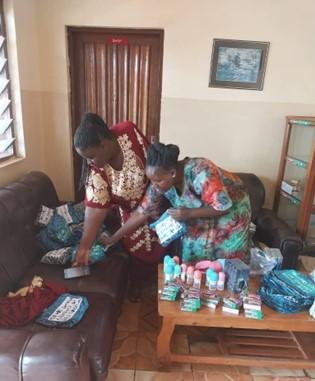ECO_CARE meets Agnes Haule
January 15, 2023
ECO_CARE meets Agnes Haule
By Agnes Haule (in collaboration with Emily Murray)
This month the ECO_CARE blog presents a testimony from Agnes Haule— a lawyer, activist, and legal aid helper from Songea, Tanzania. She supports her community and students in many different capacities by organizing workshops and laboratories on girls’ education, gender equality, and education for children with special needs. She is also an entrepreneur and contributes to developing ECO_CARE’s approach to emotional and ecological education by creating and facilitating sponsorship programs for school children. Agnes has been involved in several different ECO_CARE satellite projects, such as Akma 2 Ocean Senses (coordinator prof. Giuliana Panieri), the Strategiske Midler 2022 (Jurfak UiT The Arctic University of Norway) and several crowdfunding initiatives (Girl’s Access Education in Tanzania in 2022; Help Matimira Build Library in 2021), and works with different ECO_CARE team members to bring research and education together. Agnes comes from Matimira, a very small village in the Ruvuma Region, and she lives in Songea with her nine-year-old daughter, Jolline.

Agnes Haule illustrated by Valentina Russo in Murray, Poto, Russo, Follow Your Heart. The School for Multipotentialites, Aracne, Rome, 2022.
Research
- Can you briefly tell us about your research passions?
My research passion is working on human rights to protect and defend children and women’s rights, with a specific focus on the right of access to education for talented children and for children with special needs.
- What are the issues that you are planning to tackle with your work in 2023?
I plan to continue with my campaigns to raise awareness of gender-based violence. I would also love to coach boys into responsible and caring men. In particular, I am currently developing educational programs that promote a positive attitude, empathy, and an awareness of the importance of preventing and putting an end to bullying, harassment, and violence against girls and women. I am also planning to train students from vocational schools to make reusable sanitary pads, and I am also planning to open and manage a small school in Songea, Tanzania.
- Can you tell us something about the complexity of a professional career that combines research, your work as an activist and application for funding?
I think that in my case the three are all connected. I love working as a project coordinator; spending time carrying out research before promoting a new educational approach; and, in the process, developing my networking skills and getting insights and ideas for project applications.
- What is your experience with project applications?
I have been searching and applying for funding since 2013, when I started working as an assistant researcher at the African Institute for International and Comparative Law in Songea, Tanzania. Following this position, I started to work independently as a legal aid provider. Since then, I have been working with different actors at local, regional and international levels on many projects, all related to gender-based violence and access to education.

Agnes and her colleague Christina, from the vocational school Herdis Veda made 50 emergency kits for girls on November 25, 2022.
Teamwork
- Can you tell us something about your teamwork experience?
My team is formed by volunteers, teachers, and young assistants. They have strong emotional intelligence and interpersonal skills, a clear vision, and a willingness to achieve our project objectives.
- What do you enjoy about working in a team?
Getting new ideas from other people, sharing experiences, working smoothly by solving problems together, reaching out to marginalized people, and gaining a quicker understanding of failure and success.
- Describe a challenging workplace situation. How did you deal with it?
Some challenging workplace situations include adapting to the change of leadership in the NGO I was collaborating with; and certainly, I am constantly facing economic issues, difficulty in meeting the donors’ and stakeholders’ expectations, and difficulty reaching possible beneficiaries (especially marginalized peoples).
- According to you, what makes a team successful?
Cooperation, respect, integrity, motivation and patience!
- Describe a time when you found it difficult to work with someone from a different background;
The most challenging experience I had was when I was offered the opportunity to travel to the US and the UK and I experienced different cultures, food, language barriers and new climatic conditions.
Career and family life
- Can you please tell us about your experience in balancing career and family life?
I am quite well organized with my timetable, and I can balance my work with the community and my family life, as a single mum of a girl. I work part-time and dedicate the rest of the day to my family, my farm and home activities.
- Did you ever feel overwhelmed by the need to balance family and career?
I never feel overwhelmed, because I consider my career as a part of my family and I feel very proud to serve my community.
***
Agnes is a true multipotentialite. She is selfless and compassionate and is always looking for innovative, sustainable ways to support the girls and women around her. Her experience with education and the vocational school’s need for more English teaching resources was a source of inspiration for ECO_CARE’s new book, Follow Your Heart: The School for Multipotentialites!